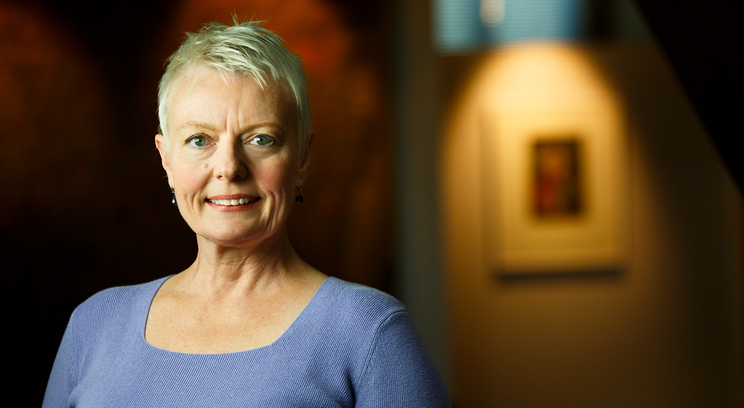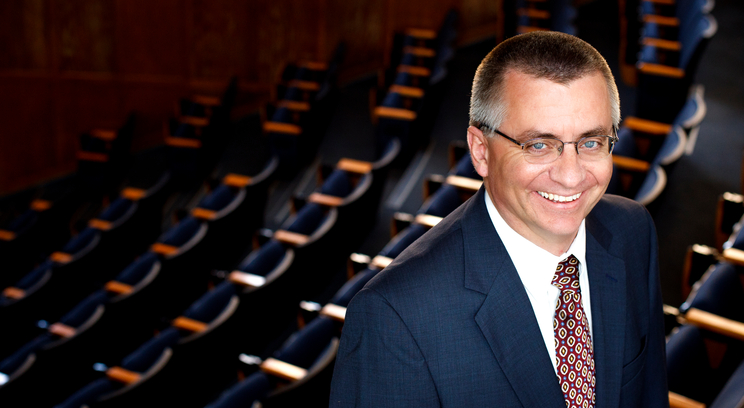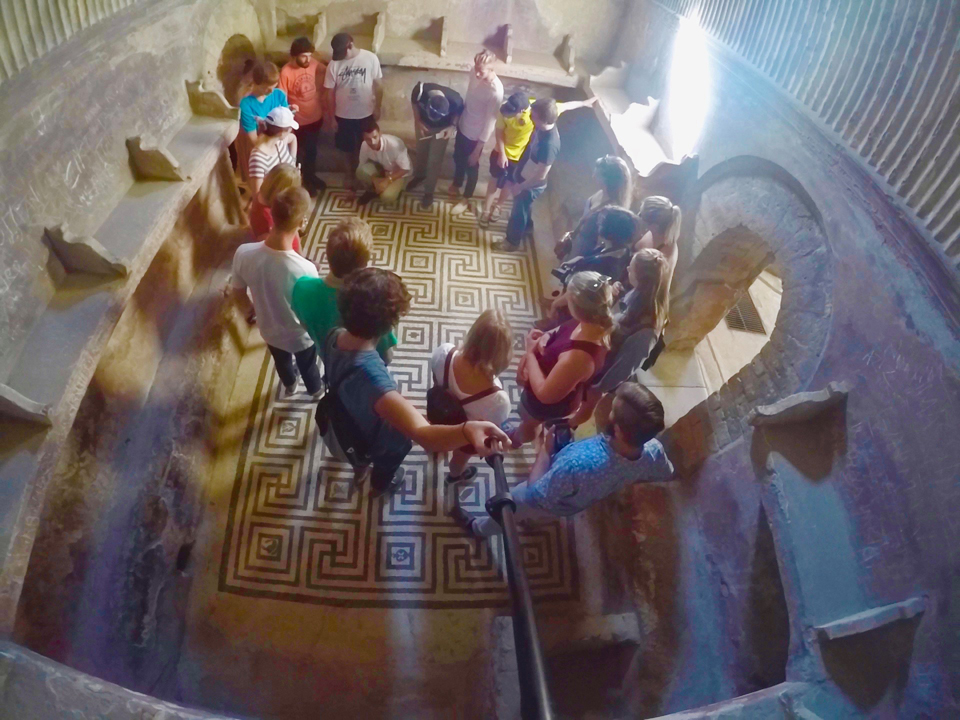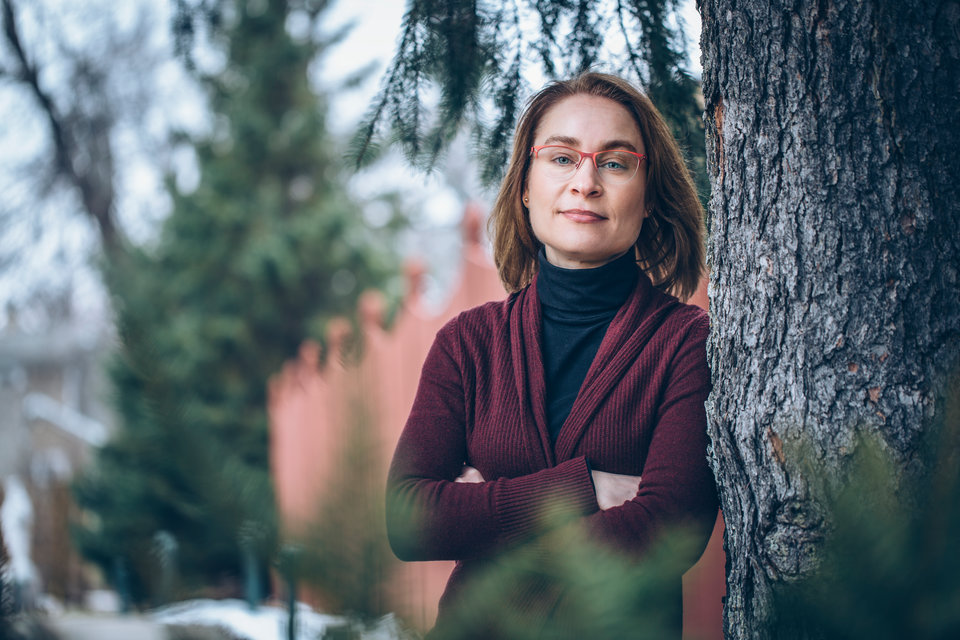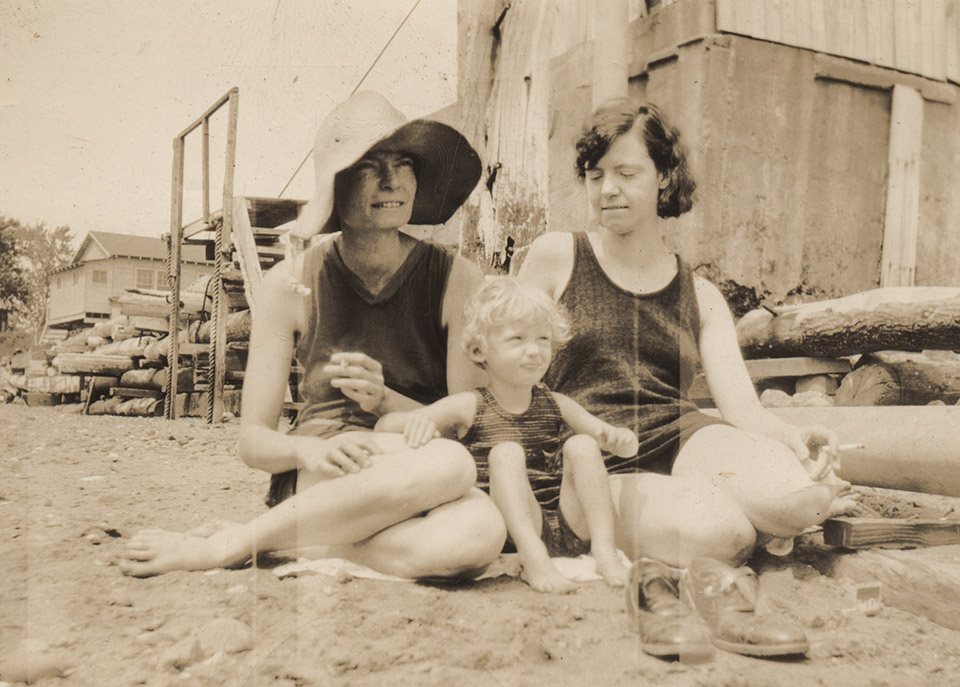More than 35 years as an actor, director and producer in theater have brought Mary Beidler Gearen spiritual meaning, artistic challenge and professional recognition. Her connection with St. Thomas and the College of Arts and Sciences began in 2004, when she and her husband, Jim Gearen ’83, became interested in the Catholic Studies program. She has been a member of the College of Arts and Sciences Board of Advisers since 2010, when she traveled to Greece with a group led by Art History Department Chair Mark Stansbury-O’Donnell.
You’ve been in the theater profession for more than 30 years. What are some significant moments from your journey thus far?
My favorite quote is from the play "Gardenia," by John Guare: "How do we unchain ourselves from history without losing any of the value of the past?" I have been amazed at the number of times something happens in my life that makes me say, "Oh, that’s why I went through that experience! It has prepared me to navigate this." Recent example: Tom Hanks and I have known each other since our professional careers began in 1977 with two seasons of theater internship at the Great Lakes Shakespeare Festival in Cleveland, Ohio. Last May, Tom was in "Lucky Guy," his Broadway debut. While preparing to visit with him after the show, I found out that my long-lost 1990’s Chicago theater pal, Joe Forbrich, was also in the cast. Joe invited me to return to New York City a couple of weeks later to join Tom and others of the "Lucky Guy" cast in a staged reading of Joe’s new play. The connection of those artistic "dots" from two significant points in my career – the naive ’70s with the established ’90s – gave a Georges Seurat-like clarity to the picture of my artistic journey. I was in bliss. I believe that all such significant moments of my artistic life are born of "collective artistic bravery" and the trust that it engenders. That translates into unconditional lifelong friendship.
What is the value of the arts in society?
It is a responsibility of art to call a person to a different place. I always go into a play, film or gallery supportively hopeful, looking for what I call the "golden moment" – the "aha" moment when the work catches me and draws something new out of me. If a person walks out of an artistic experience feeling the same as when they walked in, there has been a lost opportunity.
St. Thomas is known for its high level of student participation in study abroad programs, and the Department of Art History will offer a new J-Term course in London beginning in 2014. How important is it for students to experience the world and see art firsthand?
One of the most fulfilling spiritual moments in my career as a performer occurred in the ancient Greek theater at Epidaurus while on a St. Thomas art appreciation odyssey led by Mark Stansbury- O’Donnell. This trip provided me an opportunity to "make a pilgrimage" and deliver a dramatic monologue from Euripides’ "Trojan Women," while standing in the center of that marvelous, ancient performing space, flanked by the women on the trip, including my daughter. St. Thomas offers faculty-led travel/study opportunities for students, giving them added access and insights they might not otherwise have. One can be a student of the world while sitting at home. A student can be a citizen of the world by "going there."
What is the role of the liberal arts in college and beyond?
The liberal arts to me translate as a series of opportunities for students to learn the diverse "languages" of the world around them. To place ourselves in a liberal arts college setting is to place ourselves within a secure set of circumstances that will lead us into unknown territory from which we emerge surprised, renewed, enlightened and changed. If we only know "one thing," how fearful must everything else appear! A spirit is strengthened by challenge. Faith is tested by adversity. Moral codes are evolved through sympathetic interaction with those who are different.
How do you think theater connects to the liberal arts education?
Theater is a critical medium through which perspectives on wisdom, religion, history, politics and morality have been laid out for the communal consideration of entire cultures. Theater is an "all-inclusive medium." Within her potentially electrifying form is the means by which to unify and celebrate in one moment all the best of what the liberal arts have to offer! One single moment of live theater can hold an infinite array of the elements of language, music, dance, art, neurology, biology, psychology, theology, philosophy and feats of engineering!
What advice do you have for students entering the College of Arts and Sciences?
Look for the golden moments. Yearn for them. Expect them. Allow them.
What’s in the future for St. Thomas?
Excitement! Big challenges bring great rewards if we lend our full attention and earnest good will. In acting, the line that is hardest to remember quite often holds within it the key to the soul of the character! St. Thomas has a magnificent history of effective, devoted, distinctive leaders, each of whose gifts have bettered the university and increased its promise to provide opportunities for students to become remarkable, deep-minded members of the world community.
Read more from CAS Spotlight.
